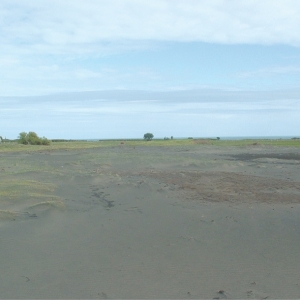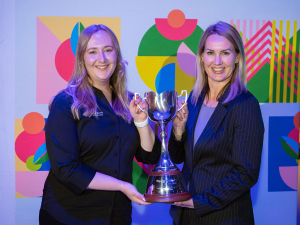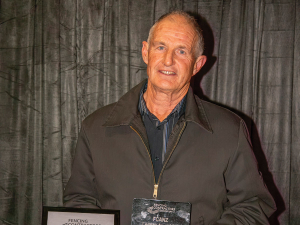That’s the claim of Taranaki Regional Council’s director of environment quality, Gary Bedford.
Land farming is a practice where biodegradable waste including small quantities of hydrocarbons adhering to mud and rock cuttings from oil drilling is integrated back into the soil on farms to naturally degrade and co-incidentally to improve fertility. It has been done mostly on dairy farms in Taranaki.
But,under pressure from environmentalists, Fonterra says it won’t collect milk from any new farms that adopt this practice. The co-op confirmed toRural News that it is certain there is no food safety issue in respect of land farming. But Fonterra says the high cost of testing the land underlies its decision.
Bedford says land farming has been done in Taranaki for 12 years and the process is a “robust and scientifically environmental sound” way of handling waste from drilling.
“All sorts of allegations have been made about the practice which are not consistent with the facts. As a result of that pressure Fonterra has made a ‘marketing’ decision not to pick up milk from any new land farm sites.”
He says this now raises questions about land farms because they are on dairy farms and the farmers concerned have been getting much better production. “The way I see it, Fonterra has been put into a position where this decision has nothing to do with science or environmental performance.”
Bedford says typically a farmer has made available his scrubby waste land paddocks, usually covered in blackberry or very sandy and lacking fertility. Once the scrub has been cleared away, the land is flattened, the topsoil is removed and waste is applied, usually in the form of a de-watered slurry.
Strict consent conditions apply and degradation of waste is closely monitored by the council.
Once the all clear is given, normally in about 18 months, the top soil is replaced and grass seed and fertiliser are applied to re-establish pasture.
Bedford says good science underlies this process, including excellent research from Alberta, Canada, where this work is extensive – “far greater than we’ve seen in Taranaki. They deal with up to 10,000 oil wells per year in Alberta, whereas we have had about 600 wells in Taranaki in 150 years.
“And conditions in Canada are much harsher than in Taranaki. They have very thin soils which are frozen for up to six months as opposed to our rich volcanic soils and temperate climate, which make it much easier for the hydrocarbons to degrade.”
Bedford says the Canadian science is very robust, but the council has been, and is doing, further research to ensure the ecological state of soils on land farms is safe. He says a Crown research institute is now doing more research for the council and an agricultural scientist, Dr Doug Edmeades, is doing work on the productivity gains made on land farms.
He says the only negative effect found so far is compaction of the land by tractors used to prepare the ground for the waste material. Bedford says farmers are unhappy about Fonterra’s decision because they have lost a tool to improve their pasture. Farmers are also unhappy about the ill-informed comments made in the media.
The problem how is what to do with the waste, Bedford says.
“There are only two options: bury it deeper, safe but silly because you are not solving the problem; or look at going to a landfill, which is a waste of expensive landfill space.
“Land farming means you are solving the problem and [enhancing things for] the farmer.”

















